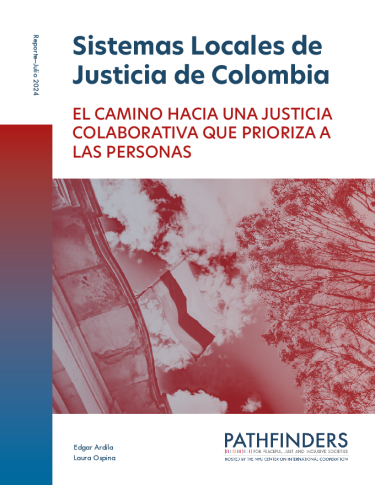Local Justice Systems in Colombia: The Road to Collaborative Justice that Prioritizes People

People-centered justice puts people and their needs at the center of justice policies, programs, and services. Starting by understanding their most common problems and experiences in trying to resolve them, people-centered justice takes a data-driven and evidence-based approach to prevent and resolve people’s problems. Through its focus on fair outcomes for people, people-centered justice is different than current approaches to justice, which tend to focus on processes and institutions and seem to serve a few rather than all.
Colombia’s Local Justice Systems (LJSs) are a good example of a people-centered approach to justice. Their success hinges on effective coordination and collaboration among various justice actors, spanning national and local levels. The strategy did not emerge from a policy established by a particular entity but, rather, from the convergence of various initiatives in an organic way over a period spanning more than two decades in different regions of the country.
This case study seeks to put a spotlight on Colombia’s LJSs and their contribution to the 2030 Agenda, particularly focusing on the target of Sustainable Development Goal (SDG) 16.3, which aims to facilitate universal access to justice through effective, accountable, and inclusive institutions at all levels. The study analyzes the convergence process that has shaped the current state of the LJS, aiming to identify its constituent elements and assess the evidence of its impact across various levels and institutional structures within the Colombian justice system, as well as its role in bridging the gap in access to justice. It highlights successful experiences and lessons learned in the strategy’s implementation which may be useful for other contexts.
To thoroughly understand the initiative, the study begins by discussing key challenges to access to justice in Colombia and shows how the LJSs emerged as a response to these local hurdles. Given the multifaceted nature of the LJSs evolution, the study emphasizes how state actors at different levels, supported by international cooperation, converge with community experiences. In doing so, it offers important lessons on the importance of collaboration and coordination at the local level for improving people’s access to justice
Related Resources
